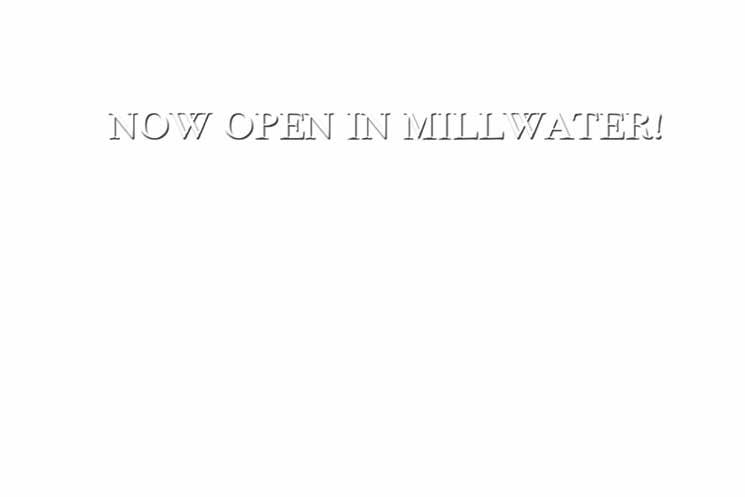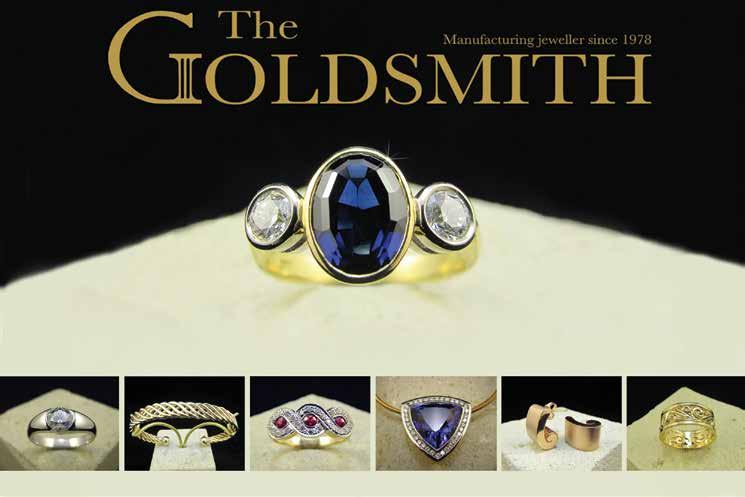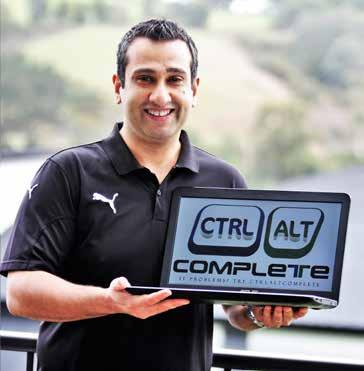
4 minute read
Rechelle McNair and our dads
6
He’s still Daddy to me
Advertisement
I can’t recall ever feeling like I could run into his arms as a child. He was strict, uninviting, and our house was a dictatorship, not a democracy. By today’s standards, he was downright mean. His own dad had died when my daddy was 14 and, being the oldest of six kids, this meant he became the man of the house. No one showed him or instructed him with the finer details of the job description, so he ruled the only way he knew how.
He was our provider. He gave us a roof over our head, clothes on our backs and food on our table. We still called him Daddy. I was in my late teens when I really got to know him. What I learned forever changed our relationship. Under the hardnosed ruler was a man who desperately loved his children, but was totally ill-equipped to demonstrate that love emotionally. As an adult, I have and still do run into his arms, and even now they feel like the strongest arms I’ve ever felt.
There’s just something about daddies. Whether they are related to us biologically or not, daddies hold a special place in our hearts and in our lives. We all know the importance of a father figure in a boy’s life; seldom do we look at the effects on a girl’s life. We throw around words like “daddy issues” without really understanding the dynamics.
Dads: strict, loving, silly, staunch; whatever their personality, whatever the strengths or failings, they hold a special place in our lives. Like us mums, they are going to get it wrong a few times. But those mistakes don’t override the love in their hearts.
As we celebrate Father’s Day this month, I want to honour all the men who step up to be more than just a father, they are Daddy.
Rechelle McNair sKids Kingsway
now open in millwater!


www.thegoldsmith.co.nz








quality handmade jeweller jewellery made by old at the bench on site school
• Custom Design • Diamond Specialists • Repairs • Stone Replacement • Alterations • Insurance Work • Watch Service and Batteries

Exercise as Medicine
Most of us are aware that exercise has benefits for many systems in our body. Not only does our musculoskeletal system (muscles, joints, bones) benefit, but there is well-established and growing evidence that exercise also helps mental health, heart health, blood pressure, cholesterol levels, endocrine disorders (e.g. diabetes), the pulmonary system, and inflammatory arthropathies (e.g. rheumatoid arthritis).
Exercise can benefit in many aspects of a disease process. It may be in prevention, the disease process itself, symptoms of the disease, or in quality of life.
Let’s use type 2 diabetes for an example of prevention. In both a Finnish (Tuomilehto et al., 2001) and an American (Knowler et al., 2002) study of individuals with impaired glucose tolerance (i.e. a pre-diabetic state), exercise and lifestyle modification were demonstrated to reduce the risk of progression to type 2 diabetes by 58%. These individuals were completing about 150 mins of moderate intensity exercise per week (5 x 30 mins). This is similar to what the New Zealand Heart Foundation recommends – 30 minutes daily.
Exercise can also affect disease processes. To continue the previous example, exercise has been demonstrated to improve muscle sensitivity to insulin, and enhance muscle contraction induced glucose uptake in working muscles (meaning glucose can get into the muscle cells more easily). Exercise also has a beneficial effect on the endothelial (the inside of blood vessels) dysfunction seen in patients with insulin resistance, encouraging smooth muscle relaxation and vasodilation (Pedersen & Saltin, 2006). This exercise can be in any form. An increased respiratory rate and feeling hot or a light sweat would suggest you are exercising moderately. Your daily exercise doesn’t need to be all at once for it to be effective. For example, if you choose to cycle to work and it takes you 15 mins each way, then you’ve done your 30 minutes for the day. If you haven’t exercised for a while, move into new exercise gradually, give your body time to adapt to the new stress. In general, if exercise starts to produce symptoms, talk to your GP.

Hamish Syrett Osteo Me
References on request
Back Pain Neck Pain Tension Headache
Postural Strains Shoulder Injuries Sports Injuries At OsteoMe, we have staff trained in: Me, we have staff trained in: Acupuncture, Pilates and The McKenzie Method. Acupuncture, Pilates and The McKenzie Method. CALL US TODAY TO MAKE AN APPOINTMENT. 0508 OSTEO ME
ARE YOU IN PAIN?
Maybe it’s time to get on top of it! At OsteoMe, we can help you with:










